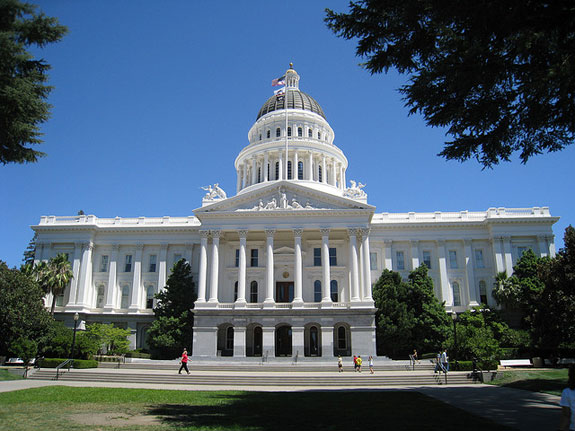
A new report from NRDC and Smart Growth America -- which examines what all 50 states are doing to curb greenhouse gas emissions from transportation -- lauds California as the most progressive state on policy, but points out that its transportation and spending priorities don't match the bold blueprints, particularly as it relates to public transit.
It all points to Sacramento, where legislators have continuously raided the only dedicated fund for transit, leading to massive cuts statewide.
The report praises the state's smart-growth law, SB375, as a model for other states, noting that "it puts in place a strong framework that can be used to drive better coordination between transportation and land use, and, of particular relevance to this analysis, to do so in a way that reduces GHGs." It remains uncertain, however, "whether SB 375 will deliver results on the ground as opposed to just changes in planning documents."
In September, the California Air Resources Board (CARB) adopted ambitious targets for reducing greenhouse gas emissions by 2020 and 2035, a move that will compel the state’s metropolitan planning organizations (MPOs) to better integrate land use and transportation planning. The real test for SB375 will come at the local level as MPOs draft plans to meet the targets.
Unless the state prioritizes investments in sustainable transportation, California's progressive policies will continue to be undermined.
"Huge cuts to public transit threaten these (policy) gains and could lead to even more devastating consequences for California communities and the economy," said a joint press release from Smart Growth California, NRDC, TransForm and the Sierra Club of California. "In California, transportation policies and spending decisions are not in line with the state’s bold commitments to reduce the amounts of carbon dioxide and other emissions being pumped into the air."
Last year, TransForm released a study that found that good access to public transit in major metropolitan regions could save California residents $31 billion a year and reduce GHGs by 34 percent.
"By failing to increase investments in transit — and worse, by drastically cutting transit in recent years — California is working against its own interests and missing key opportunities to save money, rebuild the economy, create jobs, and build the transportation system needed for the next hundred years," the joint statement said.
Graham Brownstein, TransForm's statewide policy director, said it's unclear what the upcoming legislative season holds for public transit. Considering the funding restraints imposed by Proposition 26, the coming year is going to be especially challenging as legislators attempt to lift the state out of its financial mess. Sustainable transportation advocates are hoping to work with legislators to craft a long-term funding solution for transit, as well as walking and biking infrastructure.
"This is not a mystery. People do understand this, but it's such a big problem and the solutions are so politically and economically difficult that we just haven't seen the leadership that I think is ultimately needed to really drive through the necessary reforms," said Browstein, adding that he sees it as a "moral hazard" problem.
"Nobody wants to be the first legislator to stick out their neck, and so, it really does remain to be seen. We are hopeful that with the new governor, that with some of the new folks in the Legislature, the politics may shift a little bit in this session and we may see some leadership on transit funding issues."





